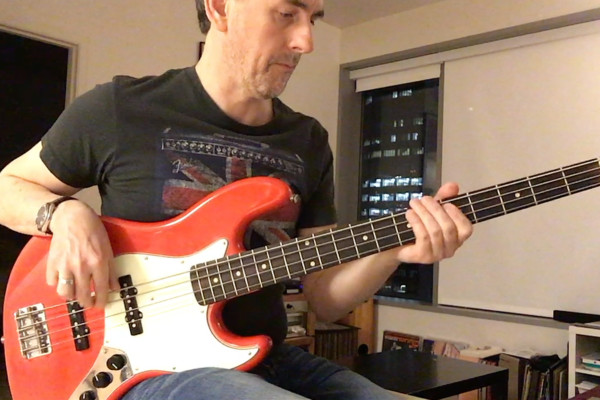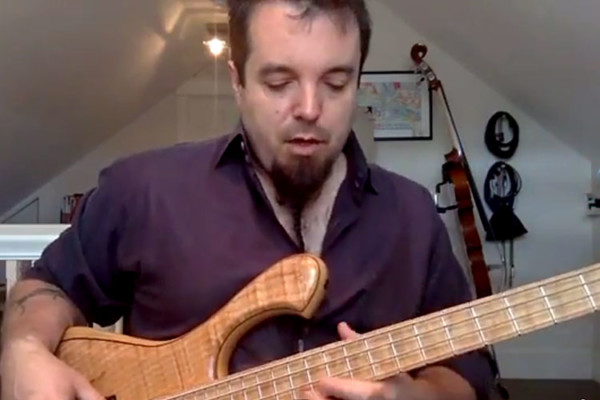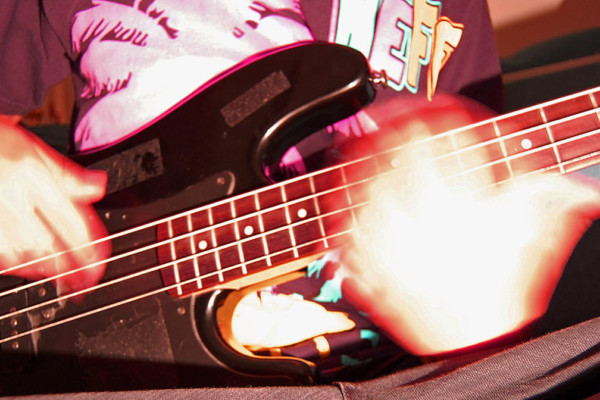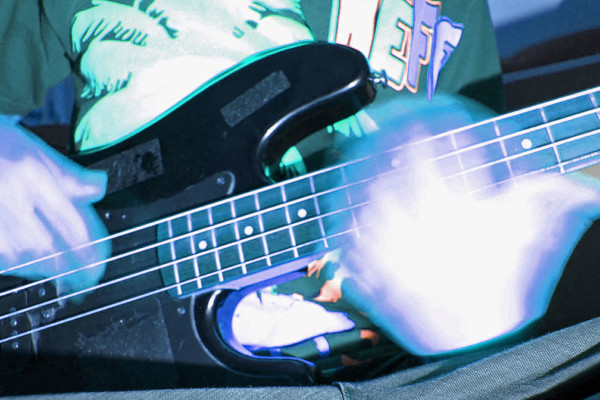Soloing Archives - Page 2
Creative Bass Lines: The Chameleon Variations
In this lesson, I’ve taken a pretty classic and fairly easy to play bass part from Herbie Hancock’s “Chameleon” and given you a few examples of how to use that as a springboard for creating other bass lines around that core groove. This can be really useful when playing under multiple soloists on the same tune. It’s not always enough...
Advanced Bass: How to Use Melodic Quotes in Your Solos
The use of melodic quotation is prolific within the genre of jazz and its related modern styles. In this lesson, we’ll cover how to use melodic quotes in your solos and breakdown some of the commonalities used by many great jazz masters. Applying this to two choruses of a B? blues progression, we’ll take a step-by-step analysis which includes taking...
Soloing When The Band Drops Out
Q: I’ve been reading through your No Treble columns and had a question pop into my head. I’ve been asked to play more solos recently at a lot of different gigs from jazz to R&B. I find that half (or more) of the time, when it comes to the bass solo, everyone stops playing except for the drummer. How do...
Turning Exercises into Real Music
Q: I’ve been studying for a while now, and I’ve been practicing my scales and modes as much as possible over changes. I’ve also been working through arpeggios, including the methods you talk about in your Improvisor’s Path book. For example, I’ll work arpeggios through tunes in different inversions and so on. However, when I go to solo freely over...
Beginning Jazz Soloing: A Melody First Approach
Some methods of learning jazz improvisation start out from the beginning by asking us to memorize chords, scales, and to play patterns in every key. For those unaccustomed to improvising, or inexperienced in theory, starting out this way can be a daunting task. It can make the learning curve for improvisation seem insurmountable. Some people take naturally to it, of...
Articulations and Expression: A Bass Video Lesson
Q: I’m at a point where I’m trying to finally get into soloing, and playing bass as a vocal, expressive instrument. But I’m running into a wall. Any chance you’d be down to do a quick video on articulations? As in, the slick slides you use, the fantastic trills, expressions and so on. And blue notes! (I think they’re blue...
Soloing on Bass: What Do You Think About?
Q: What should one be thinking when soloing? Do you simply hum the melody in your head or do you think of the solfege/scale degree at the same time? I try to sing the solfeggi, but when it comes to some scalar sequences or faster phrases, I feel like my head might explode. But if I stop singing the solfeggi,...
Makers of the Melody: Part 3 – Time to Take that Solo
It’s official. You’ve been given the nod from the guitar player and called out by the vocalist… time for a solo. Against your better judgment, you accept and try to switch your thinking from root notes and walking to playing the lead, expressing your thoughts, and showing off your musicality. You’re stepping out of your comfort zone, ready to play...
Makers of the Melody: Part 2 – Soloing
Bass solo! Bass solo! The bandleader points his finger at you, giving you the okay and hushing the rest of the band. Great. Now what? We’re not the guitar player… we haven’t worked on Hendrix licks or memorizing the solo section to “Freebird”. We can’t just crank up the distortion or create mesmerizing soundscapes with our pedals. We’re the bass...
Easy Experimentation for Artistic Growth in Improvisation
Students of improvisation are often looking for the quickest way to learn vast amounts of new material, all while sounding great immediately. Oftentimes this translates into playing a large number of tunes for a few minutes each. In the short term, such practice sessions can be helpful. This is especially true if we need to learn a great deal of...
The Bass Solo: A Guide to Soloing More Freely
Q: I am at a stage with playing jazz where I feel confident playing bass lines, such as walking through challenging pieces. Given time to learn the chord sequence, I am pretty confident at playing solos over the top of backing tracks and grooves. My problem is that when playing with a jazz band – when everyone cuts out for...
Improvising and Groove: Substituting Pentatonic Scales on a Minor 7 Progression
My most recent lessons have focused on the use of the pentatonic scales as it relates to improvising and learning the fretboard (see my lessons on improvising over a minor key progression and breaking down the pentatonic scale for more background). Today we’ll continue this topic with the exploration of improvising over a D minor 7 chord using the pentatonic...









